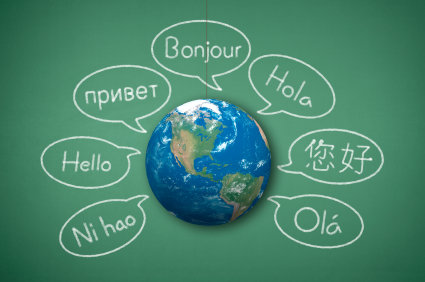It’s no secret that the Russian language is one of the most difficult in the world to learn, right after Japanese and Chinese. Mastering the rules of grammar, style and pronunciation, plus the many exceptions to them, makes studying Russian seriously difficult, especially for kids.
It’s even harder to learn the language in a bilingual setting, where a child listens to his mother and father and tries to imitate them by repeating their words, intuitively grasping their meanings. There are many situations where a child under the age of three might even absorb vocabulary from parents who speak two different languages.
A child may understand the meaning of words and know when to use them, but at the same time mix them with words from other languages. When their parents comment on this, a child may react with genuine surprise: “Why can’t I do that? I said it all correctly!”
What can be recommended in this situation? Limit your home life to just one language, making the other one permanently taboo? Not at all! It’s easy to fix communication skills in two languages by using age-appropriate literature. Russian fairytales are perfect for this, the ideal material for studying the fundamentals of the language.
The sooner you start reading fairytales in Russian, the easier it will be for your child to comprehend the subtleties of speech. The language of tales is simple and doesn’t include complex sentences or phrases. Each scene and action of the characters is accompanied by vivid illustrations, clear and memorable. Children’s fiction and educational books like “Visiting Fairytales,” “Grandfather’s Tales,” and different Russian alphabet primers for infants and early readers are just a few of the most essential books.
The more often you read to your child, the quicker and easier it will be for them to remember new words. While you read, you should comment on what you’ve read and explain the meanings of unfamiliar words. Select a story your child particularly enjoys. Read it and ask the child to recount to you what happened in it. During the retelling, help your son or daughter out with leading questions. Your child might forget something, but with your help they will always remember. Keep your speech pure and don’t let Russian words be replaced with English ones that are more familiar.
Play with your son or daughter and their fairytale characters, like Wolf and Little Red Riding Hood, or Masha and the Bear. Take a thrilling journey to southern lands with Thumbelina and become a guest at the New Year’s bonfire in “Twelve Months,” all while befriending books.
By talking and playing, your child will learn the basis of the Russian language. Plus, studying itself will be easy and exciting for them, because they’ll be learning right from fairytale characters!

